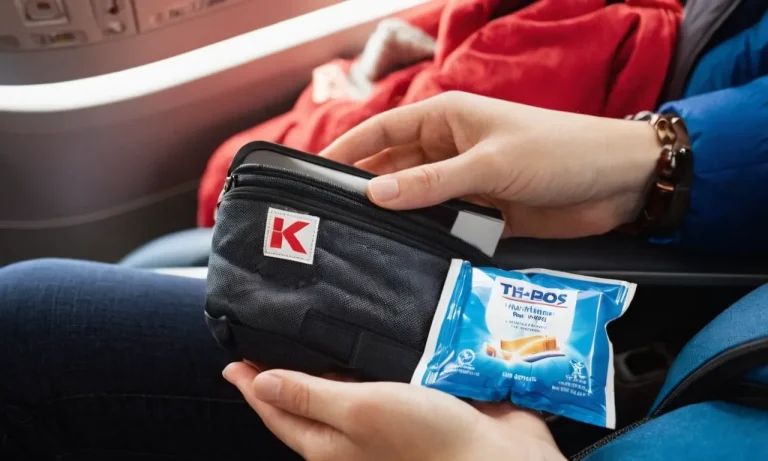Getting a dent or scratch on your rental car can be a stressful situation. No one wants to pay extra fees when returning a damaged vehicle. If you find yourself in this predicament, don’t panic.
Here are some tips on what to do if you get a dent in a rental car.
If you’re short on time, here’s a quick answer to your question: File an incident report with the rental company, take photos of the damage, and check your credit card for rental car insurance coverage before deciding if you need to purchase the rental company’s insurance.
Assess the Damage
When you discover a dent in your rental car, the first step is to assess the damage. This will help you determine the severity of the dent and the necessary steps to take.
Here are some important things to consider:
Take photos from all angles
Before doing anything else, it’s crucial to document the dent by taking photos from all angles.
This will serve as evidence of the pre-existing damage and protect you from any potential disputes with the rental company.
Make sure the photos are clear and show the dent from different perspectives.
Additionally, it’s a good idea to include a timestamp on the photos. This can be easily done by adjusting the settings on your smartphone or digital camera. Having a timestamp will further strengthen your case if any issues arise later on.
Determine if it’s cosmetic or functional
Once you have documented the dent, the next step is to determine if it’s cosmetic or functional.
A cosmetic dent refers to a surface-level imperfection that doesn’t affect the car’s performance or safety.
On the other hand, a functional dent can impact the car’s functionality and may require immediate attention.
To assess whether the dent is cosmetic or functional, consider the following factors:
- Depth: Is the dent shallow or deep?
- Location: Is the dent in a critical area such as the engine hood or near the wheel?
- Paint damage: Is the paint chipped or scratched?
- Structural integrity: Does the dent affect the car’s structural integrity?
If the dent is cosmetic, it may not require immediate repair, but it’s still important to report it to the rental company.
They may have specific guidelines on how to handle such situations. However, if the dent is functional or poses a safety risk, it’s crucial to inform the rental company immediately and follow their instructions.
Remember, every rental company may have different policies and procedures for handling dents, so it’s important to familiarize yourself with their guidelines before renting a car.
Additionally, having proper car insurance coverage can provide you with additional protection in case of any damages or accidents.
Report the Incident
If you find a dent on your rental car, it’s important to take immediate action and report the incident. Here are the steps you should follow:
Alert the rental company
The first thing you should do is contact the rental company and inform them about the dent on the car. This is important because they need to be aware of any damages to their vehicles.
Most rental companies have a dedicated helpline or customer service number that you can call to report the incident.
Be sure to provide them with all the necessary details such as the location where the dent occurred and any other relevant information.
File an incident report
After alerting the rental company, they will likely ask you to file an incident report. This report is crucial as it will document the details of the dent and the circumstances surrounding it.
It’s important to be as detailed as possible when filling out the incident report, providing accurate information about the time, date, and location of the incident.
This report will serve as an official record of the damage and can be used for insurance purposes.
Get documentation
When reporting the dent, it’s also important to gather any available evidence or documentation to support your case.
Take photos of the dent from various angles, capturing the extent of the damage. Additionally, if there were any witnesses present at the time of the incident, try to obtain their contact information.
This documentation will provide further evidence and support your claim if there are any disputes regarding the damage.
Remember, reporting the dent promptly and accurately is crucial to avoid any potential issues or disputes with the rental company. By following these steps, you can ensure that the incident is properly documented and resolved.
Review Your Insurance Options
Getting a dent on your rental car can be a stressful situation, but knowing your insurance options can help ease your worries.
Here are some important steps to take when reviewing your insurance options:
Check your credit card coverage
If you used a credit card to rent your car, it’s worth checking if your credit card company offers any coverage for rental car damage.
Some credit cards provide secondary coverage for rental cars, meaning they will step in after your primary insurance has been exhausted.
However, it’s important to note that not all credit cards offer this benefit, so be sure to check with your credit card company before assuming you’re covered.
For example, American Express offers a Premium Car Rental Protection plan for cardholders, which provides coverage for damage, theft, and loss of use charges.
This can be a great option for those who frequently rent cars and want extra peace of mind.
Consider the rental company’s insurance
Most rental car companies offer their own insurance coverage options. While this can be convenient, it’s essential to carefully review the terms and conditions of their insurance plans.
The CDW covers damage to the rental car, while the LDW covers both damage to the car and theft. These waivers can be an additional expense, so it’s essential to weigh the cost against the potential benefits.
Additionally, some rental companies may offer additional coverage options for personal liability, medical expenses, and roadside assistance. Take the time to consider your needs and budget before making a decision.
Compare plans and costs
Before making a final decision, it’s crucial to compare insurance plans and costs from different providers. This will give you a better understanding of the options available and help you make an informed choice.
When comparing plans, pay attention to the coverage limits, deductibles, and any exclusions that may apply.
It’s also a good idea to read reviews or seek recommendations from others who have experienced similar situations.
Remember, getting a dent on your rental car doesn’t have to be a nightmare. By reviewing your insurance options, you can protect yourself from significant financial burdens and enjoy your trip with peace of mind.

Decide Whether to Repair
When your rental car gets a dent, it’s important to assess the situation and decide whether or not to repair it. Consider the following factors before making a decision:
Compare repair costs
Start by getting quotes from reputable auto body shops to determine the cost of repairing the dent. If the repair cost is within your budget or covered by insurance, it might be worth getting it fixed.
However, if the cost is significant and exceeds the deductible, you may want to explore other options.
Consider time and convenience
Repairing a dent on a rental car can take time, especially if the damage is extensive. Consider how long the repair process will take and whether it will impact your travel plans.
If you’re on a tight schedule or need the car for the duration of your rental period, it may be more convenient to leave the dent as is, especially if it doesn’t affect the car’s functionality.
Negotiate with rental company
Before deciding to repair the dent, try negotiating with the rental company. If the dent is minor and doesn’t affect the car’s value, the rental company may be willing to waive the repair cost or provide a partial discount.
Remember to be polite and explain the situation clearly to increase your chances of reaching a favorable agreement.
It’s important to note that each rental company may have different policies regarding dents and damages. Make sure to review the terms and conditions of your rental agreement to understand your responsibilities and potential liabilities.
Prevent Further Damage
Getting a dent on your rental car can be a frustrating experience. However, there are steps you can take to prevent further damage and ensure a smooth return process.
By following these tips, you can minimize the impact of the dent and potentially avoid any additional charges.
Drive carefully until returned
One of the most important things to do after noticing a dent on your rental car is to drive carefully until you return it.
Avoid aggressive driving, such as speeding or sudden braking, as this could worsen the damage.
Additionally, be mindful of tight spaces and obstacles that could cause further dents or scratches.
Avoid parking in risky areas
When parking your rental car, try to choose well-lit and secure areas. Avoid parking in areas with high foot traffic or where there is a higher risk of accidents or vandalism.
Parking away from other vehicles can also reduce the chances of someone accidentally causing additional damage.
Use touch-up paint if needed
If the dent on your rental car is minor and does not affect the overall functionality of the vehicle, you may consider using touch-up paint to cover up the blemish.
Touch-up paint can be found at automotive stores or online, and it can help prevent the dent from rusting or worsening over time.
However, it’s important to note that this should only be done if the rental agreement allows for such repairs.
Remember, prevention is key when it comes to minimizing further damage to your rental car.
By driving carefully, parking in safe areas, and taking appropriate steps to address minor dents, you can ensure a smooth return process and potentially avoid any additional charges.
Conclusion
Getting a dent on your rental car can be upsetting but following these tips will ensure the process goes smoothly. Assess the damage, report it promptly, review your insurance coverage, weigh your repair options, and take steps to prevent further damage.
With some care and planning, you can resolve a rental car dent without too much time, money or stress.






